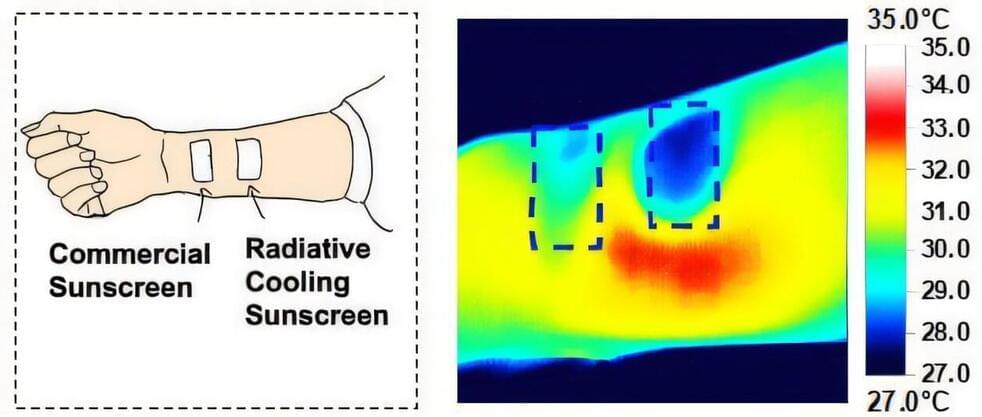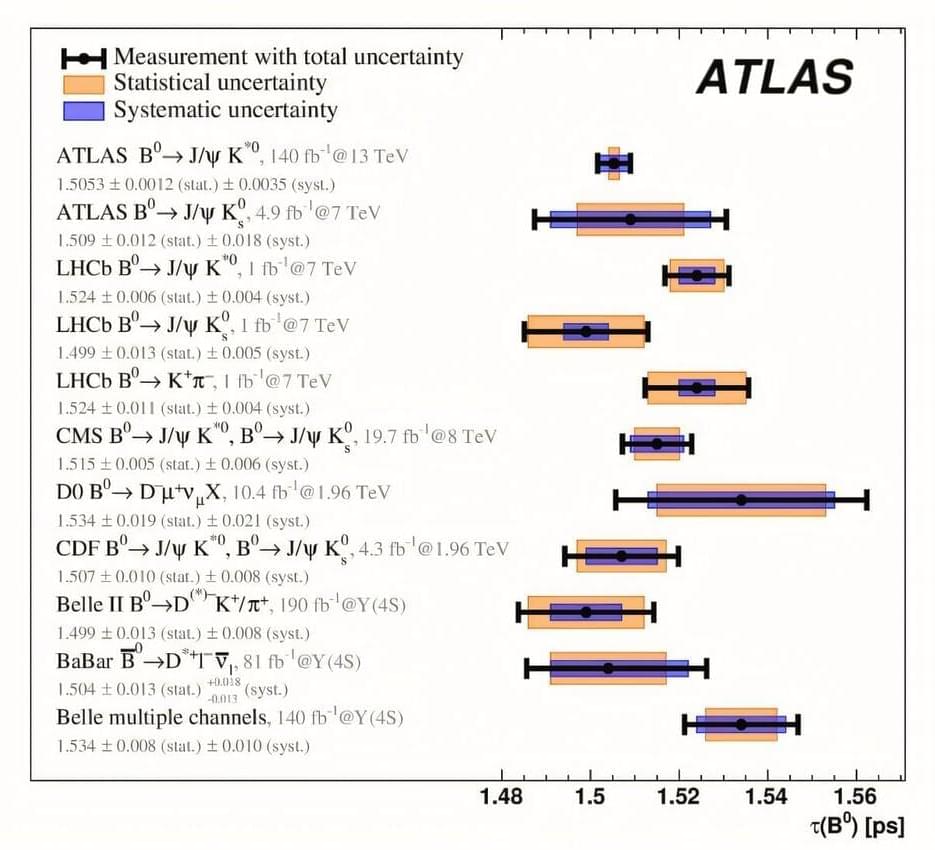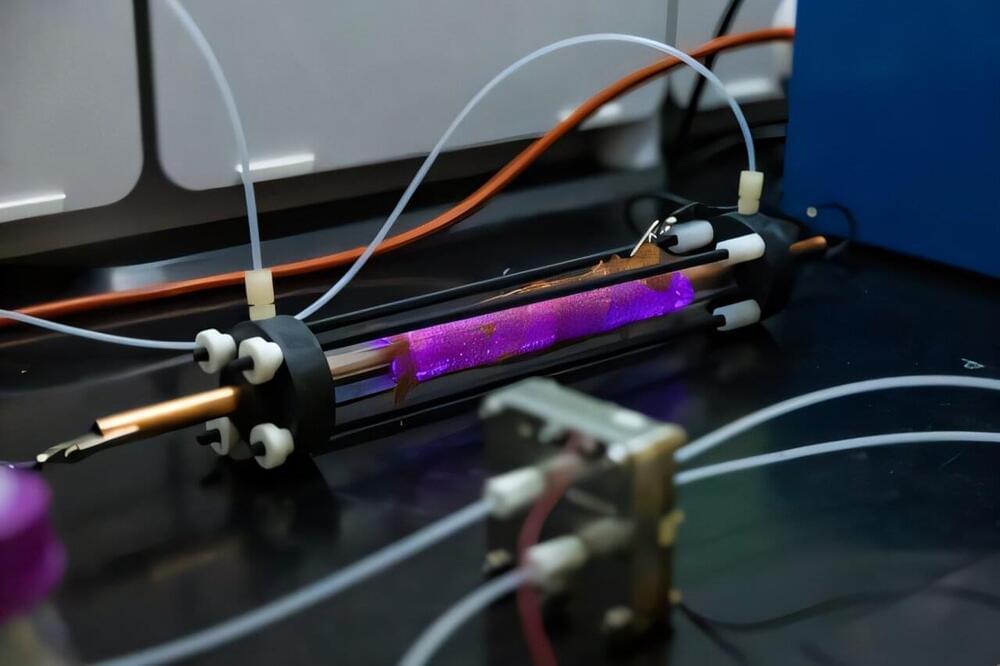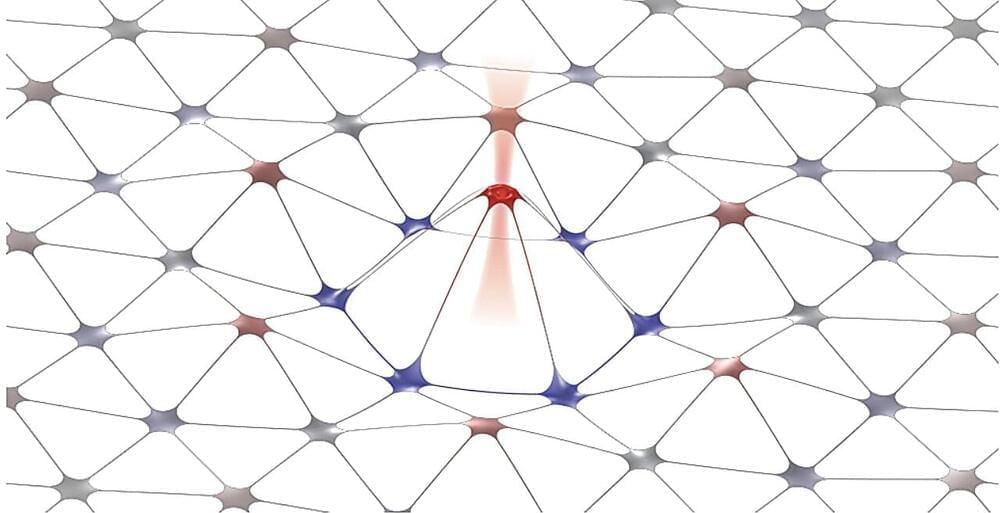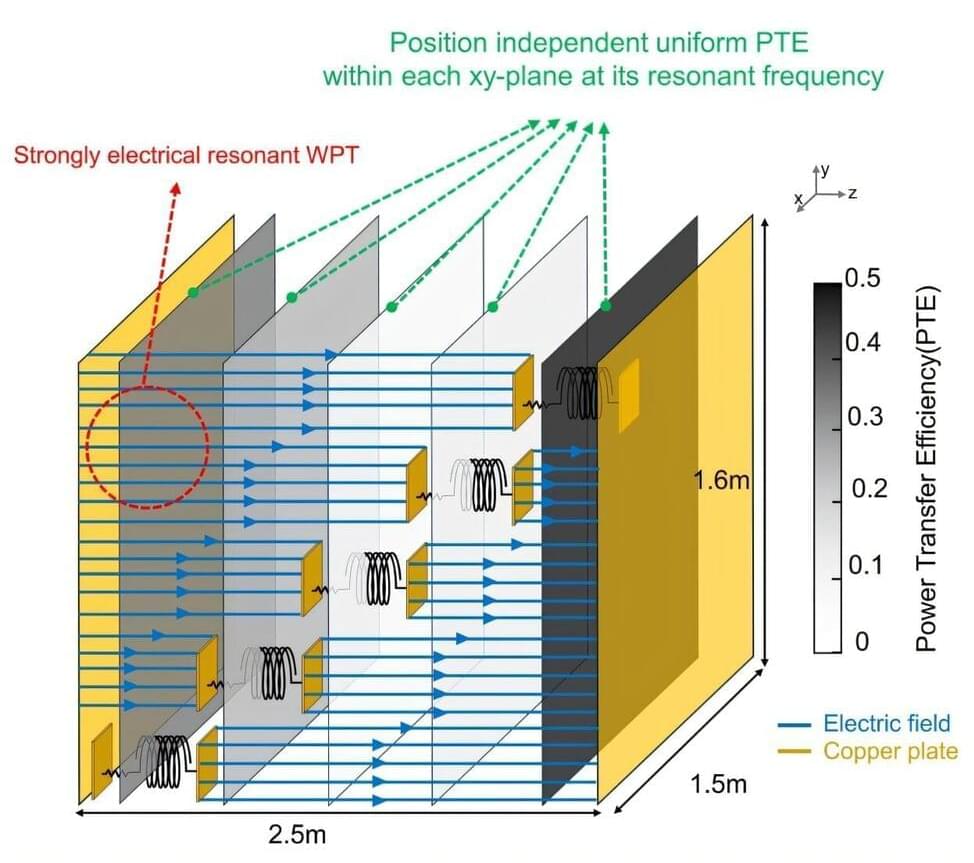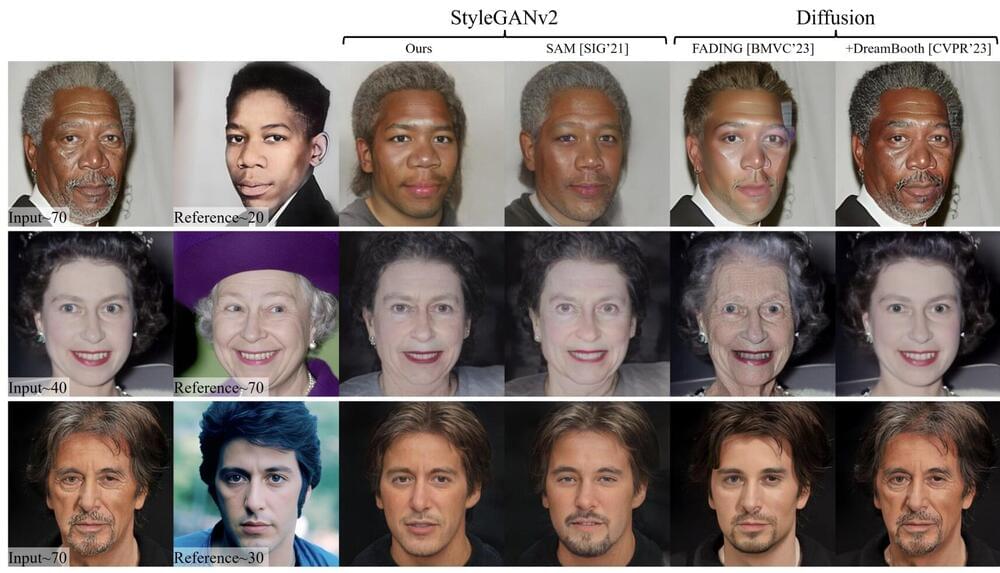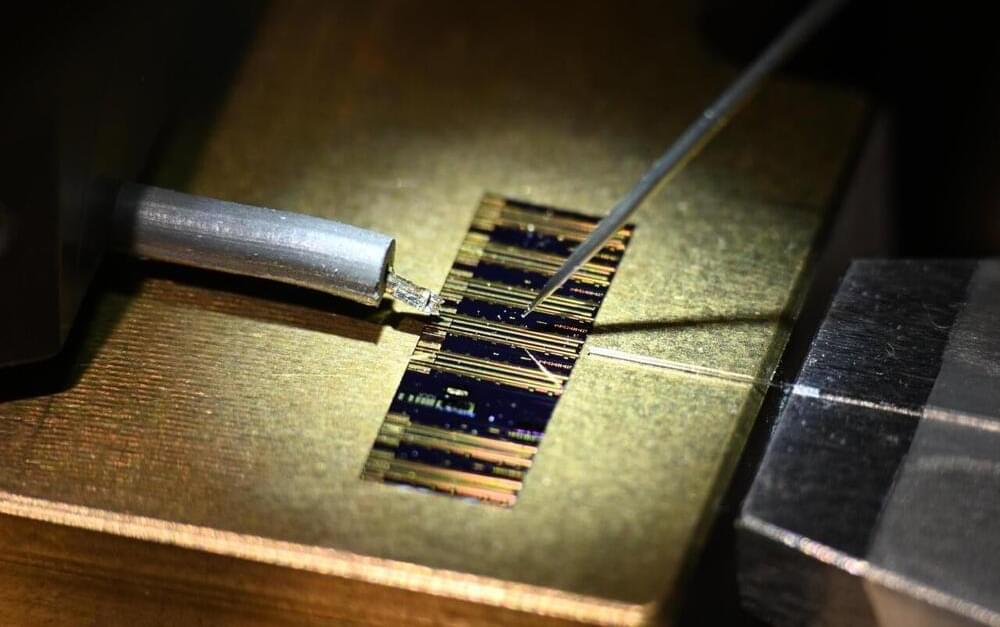Wearing sunscreen is important to protect your skin from the harmful effects of UV radiation but doesn’t cool people off. However, a new formula, described in Nano Letters, protects against both UV light and heat from the sun using radiative cooling. The prototype sunblock kept human skin up to 11 degrees Fahrenheit (6 degrees Celsius) cooler than bare skin, or around 6 °F (3 °C) cooler than existing sunscreens.
Radiative cooling involves either reflecting or radiating heat away from something, cooling whatever’s underneath. It is already used to create cooling fabrics and coatings that could both cool and heat homes, among other applications.
Some passive radiative cooling technologies rely on an ingredient called titanium dioxide (TiO2) because the whitish substance reflects heat. TiO2 particles are also used in mineral sunscreens to reflect UV light, but the particles aren’t the right size to produce a cooling effect. So, Rufan Zhang and colleagues wanted to tune the size of TiO2 nanoparticles to create a sunscreen that works both as a UV protector and a radiative cooler.
